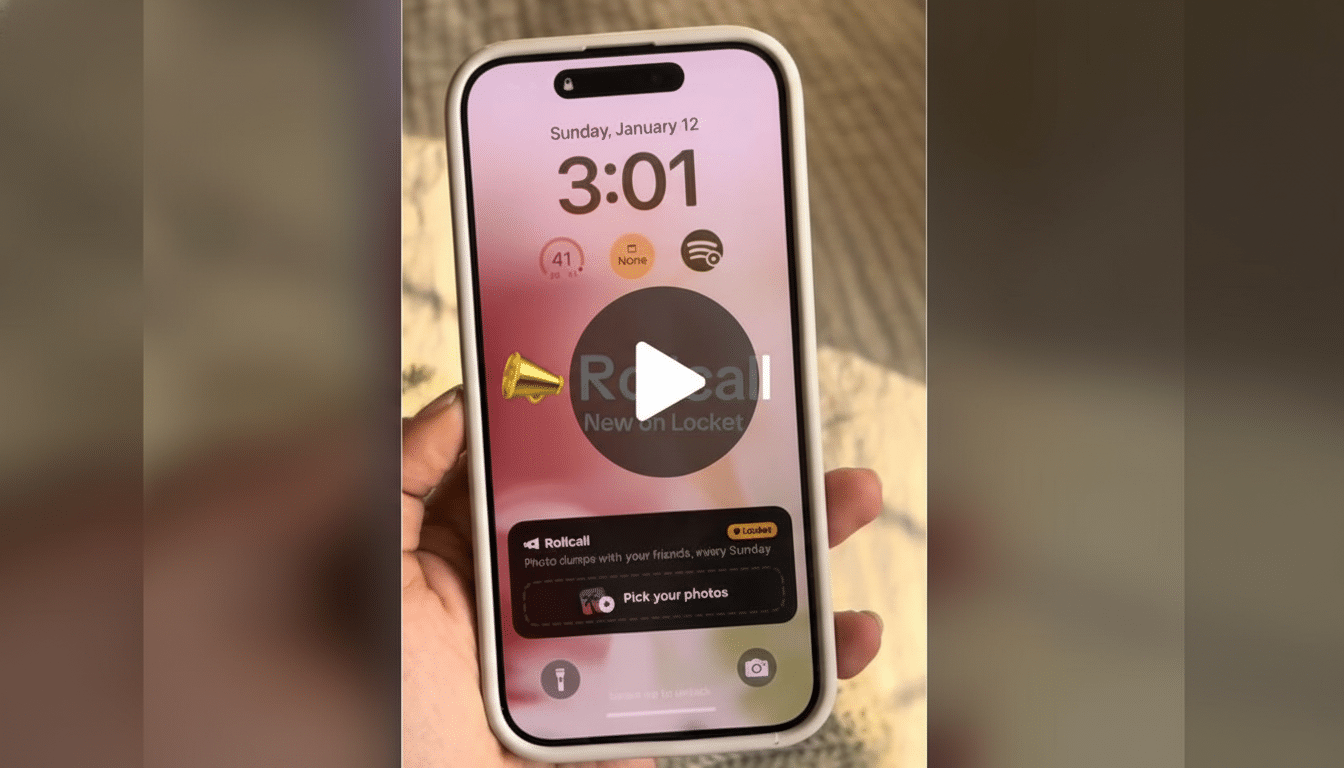Locket, the close-friends photo app that lives on the iPhone Home Screen, is seeing a fresh growth spurt among Gen Alpha, powered by a new weekly feature called Rollcall. By turning Apple’s Live Activities into a social prompt that unfolds on the Lock Screen, Rollcall nudges users to share a handful of favorite moments from the past week — and to do it together. The tactic is working. The company says Rollcall drove over 1 million shares in its first week, with roughly 80% of early Rollcall participants fitting the Gen Alpha mold.
Well over 25% of Locket’s active users now post a Rollcall every week — a sign the format has hit a behavioral nerve with younger smartphone owners.

Why Rollcall resonates with Gen Alpha’s private circles
Rollcall essentially reframes the push notification as a shared activity. A Live Activity card stays visible, pinging the Lock Screen and Dynamic Island as friends add to it. That visibility turns a passive update into a mini event: you see friends posting in real time, and you feel called to join before the moment disappears.
For Gen Alpha, who increasingly prefers intimate circles to public broadcasts, the fit is clear. Locket was already designed for private sharing with a small group; most users keep their circle to 10–20 close friends. Rollcall adds a low-friction, weekly ritual on top of this dynamic, without the binary stakes of streaks or pruned feeds.
A smart read on platform physics and iOS surfaces
It’s about a smart read on platform physics. Instead of relying on just push alerts or in-app badges, Locket seizes control of system-level surfaces that teenagers look at hundreds of times a day. Apple conceived Live Activities for real-time updates on the way, like rides and shipments; Locket takes that same structure and repurposes it to create a moment.
Locket has now seen more than 91 million lifetime installs across iOS and Android, according to Appfigures. The company also recently claimed it surpassed 2 million users and registered 1 million posts in one weekend, emphasizing an increase in the cadence of engagement when the new facility is turned on.
The Rollcall halo is undeniable; well over 25% of active weekly participants are using it every week, a strong conversion rate for a style of new interaction. And well over half of daily users return more than once a day to see how the thread fills up on their Lock Screens.

Inside the product strategy and Locket’s road to profit
In-app currency is undeniable. Locket charges on a subscription basis and has been profitable since last year with a 15-person team. It’s a correct route to profitability for the useful connections where advertising would appear out of place and brand content could wear thin.
Inside the product strategy: CEO Matt Moss, an Apple WWDC student scholarship finalist, always worked with native iOS functionality. First, with the Home Screen widgets that made Locket a sensation in 2022, and now, with Live Activities. The methodology is the same: utilize the most visible system-generated screens to make small sentiments surrounding real friends seem restorative.
Next steps for Rollcall, from video to gentle nudges
Next steps seem inevitable. Video is on the roadmap for Rollcall, and the team is exploring prompts that go beyond photos — think music you loved this week, places you visited, or simple memory jogs that help friends reflect together. AI will stay behind the scenes — the company won’t chase generated photos or videos, but it is evaluating AI for utility features like collages or auto-curated weekly highlights.
Another thread is turning digital check-ins into real-world touchpoints. Locket is experimenting. Rather than optimize for infinite scroll, the company is using gentle nudges — reminders to call or text a friend — that convert a Lock Screen moment into a real conversation.
What Rollcall signals for the future of social design
Locket’s Rollcall is a case study in building for small networks and high-frequency surfaces. It shows that apps grow syncing with the rhythm of the phone itself — not by adding louder notifications. It reflects a generational shift too: younger users prefer private, synchronous experiences that foreground people they actually know. Industry researchers have documented this tilt toward smaller circles and messaging-first behavior among teens, and Locket’s trajectory fits that arc.
By combining a simple weekly ritual, OS-native visibility, and a subscription that avoids ads, the app offers a blueprint for sustainable, close-friends social — one Gen Alpha is clearly voting for with their thumbs.

